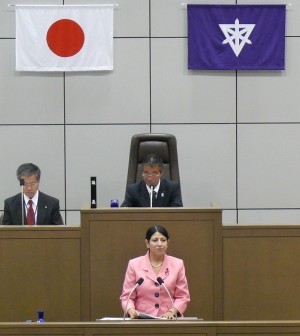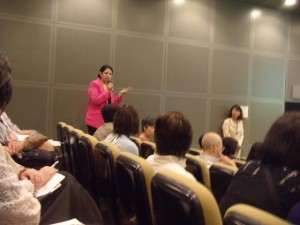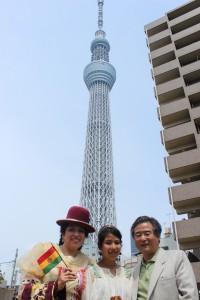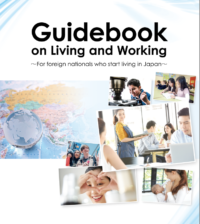- Belgium comes to Yamashita Park
- Residential Villa in Phuket Entices Remote Workers With Long-Stay Rates
- Rare pieces of French glass art at the Mirai Museum of Art
- Feast on fresh fish and seafood at the 2024 ‘Sakana’ Festival
- Would you like to ride in a Louis Vuitton gondola lift?
- Naked Snow Aquarium
- Festive lights at Yomiuriland will get you feeling the holiday vibes
A chat with Noemi Meneses Inoue, the foreign-born mom in Japan politics

Not known to many, the politically active Councillor of Sumida ku was born on foreign soil and is a woman. How’s that possible? TF finds out.
Born in La Paz, Bolivia in December 1961, Noemi Inoue completed her studies at the San Andres University where she majored in Economics. She started a high-powered career at the Banco Central de Bolivia which she left years later for a career at the United Nations, a move, she calls, “the turning point in my life.”
Eighteen years ago, Noemi moved from New York city to Tokyo to become the first non-Japan born woman to join local politics. Currently, she holds the official post as Councillor of Sumida ku which Noemi describes as “a busy but rewarding career.”
Not many foreigners in Japan know about your story. Tell us how you got yourself involved in local politics.
I am probably the first woman in public office who was not born in Japan. By some stroke of fate, I met Kazuo Inoue, my Japanese husband at the United Nations NY headquarters where we were both working at the time. We got married in Bolivia and decided to live in NYC thereafter.
My husband had to fulfill his political ambition to become a Member of the Parliament representing the Democratic Party of Japan and so not before long, we found ourselves making the big move from NYC to Japan. He was elected for 2 consecutive terms. Having helped my husband in his campaign and political activities in Sumida City, I had the unique chance to gain experience and learn the ‘nuts and bolts’ of Japanese politics.
The knowledge and experience acquired over the years had helped open up a new career path for me. Eventually, I became the Councillor that I am now.
Did you have to give up your Bolivian nationality to run for public office in Japan? How does that work?
Yes, I first had to become a Japanese citizen by renouncing my Bolivian nationality. I had no choice because the Japanese law does not accept dual nationality for people in public office. Of course, I felt sad at first. But because my husband and daughter are Japanese, the likelihood of me living here for good is very high. In addition, it is very convenient to travel abroad because most countries have visa waiver agreements with Japan. More importantly, you are treated no differently than the rest of the citizenry: equal rights, same obligations.
Regardless of how doing so had altered my life, perspectives and dreams, the opportunity to challenge myself in politics has its appeal.

What exactly are your roles and responsibilities as Councillor of Sumida Ku?
As Councillor, I review new laws to be proposed by the administration and also check the city’s policies and day-to-day administration. I am currently a member of two committees, namely: Industry and Infrastructure Development Committee and Tourism Promotion Committee. I make queries on the city’s policy or any matter related to these areas.

Noemi with her daughter and husband at Sumida’s iconic Tokyo Sky Tree
In addition, I consult with the Mayor of Sumida and the Budget and Audit Committee at General Assembly sessions on any matters related to people’s life in the city. I often make inquiries on issues related to education such as bullying, English teaching, and Japanese language education for foreign children.
Sumida City, being a historical place, has many tourist spots such as the Skytree, Edo Tokyo Museum, 47 Ronin, and Sumo Stadium, among others. It also has traditional small industries. Promoting Tourism is very important to the city and in fact, one of my roles as Councillor is to act as an advisor to the Mayor on how to attract foreign tourists to Sumida.
What’s your typical work day like?
Oh wow! You can’t imagine! I wake up at 6:30 am to make breakfast for my family and start the day as scheduled. When the assembly session is on, I go to the town office to attend assembly or committee meetings and then go back home by around 5 pm. Then I prepare dinner and go out to attend receptions, gatherings, meetings, etc. I usually am home from functions by around 10 p.m.
I take my dog for a walk, clean the house and update my FB, blog or HP, which could stretch to late nights. I am also very busy with official duties, citizen gatherings even on public holidays, Saturdays and Sundays. With me being also the Executive President of the Spanish Circle in Tokyo, I surely have no time to be bored!
Have you faced some challenges since being councilor? What was your most important achievement?
Of course, I had faced many challenges,Japanese language being one of them. It is not my mother tongue. It is not easy to write much less speak. Fortunately, I have an experienced politician for a husband who helps me with my work in translating documents and helping me to prepare questions for committees and at General Assembly.
Sumida’s landmark,Skytree, actively aims to be a tourist spot. One of what I would consider to be an achievement was being able to give the Mayor my advice on how best to prepare the city to receive foreign visitors.
Do you have children? If so, how do you divide your time between family and official duties?
This is a very difficult issue to wrestle with. In my country, spending time with family is a top priority but in Japan, the system somehow prevents me from doing so effectively.
I have one daughter who is in high school and very busy with her studies and after-school duties. She is presently the Secretary of the Student Council which is keeping her busy. My husband is equally a busy man. He does a lot of overseas travels. It goes without saying that having ‘so much on our plates’ makes us a very busy family! Nevertheless, we try to have “quality” time together whenever possible. At least we try to be together at dinner time.
Any advice you can give to foreigners who aspire to run for public office?
Well, first of all, it is important to learn the language, so you won’t feel isolated. Then if you decide to live all your life in Japan, the next important thing to consider is the change of your nationality because only Japanese nationals are qualified to run for election.
Moreover, I think it is important to have an in-depth knowledge of the Japanese laws (especially the unwritten laws passed on from one generation to another), system, mentality, culture, and the reasons why they do things the way they do. It is really interesting to understand the reasons. As foreigners, we know that there are many aspects of Japan ‘s culture and how things get done here that are different from our home countries. It is our obligation to learn, understand, and adapt to the Japanese society because we came to this wonderful country.
If you respect Japan as it is, you will be able to establish good relations with its people, gain their respect and eventually, the relationship will be reciprocal.
Wise words from the Councillor!















